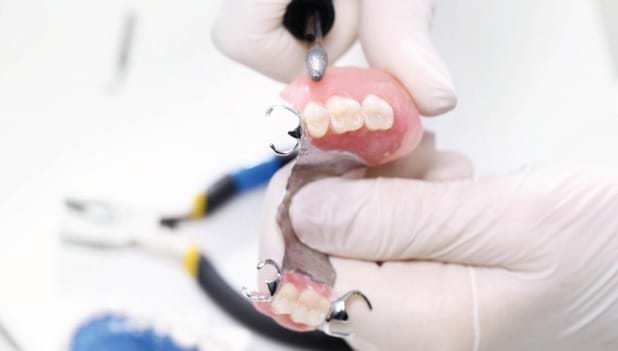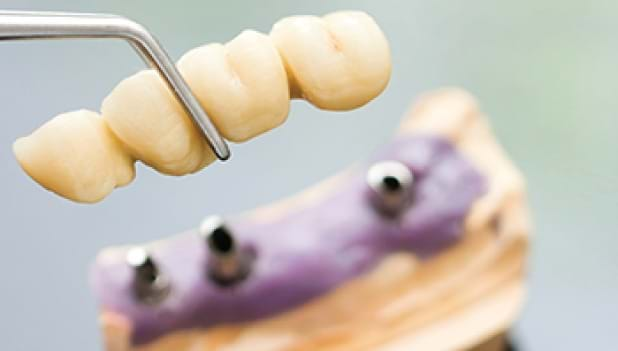Healty Mouth & Body
Healthy mouth,
healthy body
The mouth is a window into the health
of the body. It can show signs of nutritional deficiencies or general infection.
For example, systemic diseases—those
that affect the entire body, such as diabetes, AIDS and Sjögren’s syndrome—may first
become apparent because of mouth lesions or
other oral problems.
The mouth is filled with countless bacteria,
some linked to tooth decay and periodontal (gum)
disease. Researchers have found that periodontitis (the advanced form of periodontal disease
that can cause tooth loss) is linked with other
health problems, such as cardiovascular disease,
stroke and bacterial pneumonia. Likewise, pregnant women with periodontitis may be at
increased risk of delivering preterm and/or
low-birth-weight infants.
EXPLORING POSSIBLE LINKS
More studies are needed, but some researchers
suspect that bacteria and inflammation linked to
periodontitis play a role in some systemic diseases
or conditions. Likewise, diseases such as diabetes,
blood cell disorders, HIV infections and AIDS can
lower the body’s resistance to infection, making
periodontal diseases more severe.
Several studies link chronic inflammation from
periodontitis with the development of cardiovascular problems. Some evidence suggests that oral
bacteria may be linked to heart disease, arterial
blockages and stroke.
People with diabetes often have periodontal
disease. In addition, there is evidence that people
with diabetes are more likely to develop and have
more severe periodontitis than those without diabetes. Some studies suggest that periodontitis can
make it more difficult for people with diabetes to
control their blood sugar.
Although periodontitis may contribute to these
health conditions, it’s important to understand
that just because two conditions occur at the same
time, it doesn’t necessarily mean that one condition causes the other. That’s why researchers are
examining what happens when periodontitis is
treated in people with these various health
problems.
WHAT YOU CAN DO
Given the potential link between periodontitis and
systemic health problems, prevention may be an
important step in maintaining overall health.
Brush your teeth thoroughly twice a day. Clean
between your teeth with floss or another type of
interdental cleaner once a day. Your dentist may
recommend using an antimicrobial mouthrinse as
part of your daily oral hygiene routine.
Choose dental products world class safety and effectiveness.
Eat a balanced diet and limit snacks, which may
reduce your risk of developing tooth decay and periodontal disease.
Schedule regular dental checkups. Professional
cleanings are the only way to remove calculus
(tartar), which traps plaque bacteria along the
gum line.
If you notice any of these signs, see your dentist:
dgums that bleed during brushing and flossing;
dred, swollen or tender gums;
dgums that have pulled away from your teeth;
dpersistent bad breath;
dpus between your teeth and gums;
dloose or separating teeth;
da change in the way your teeth fit together when
you bite;
da change in the fit of partial dentures.
Tell your dentist about changes in your overall
health, particularly any recent illnesses or chronic
conditions. Provide an updated health history,
including medication use—both prescription and
over-the-counter products. If you use tobacco, talk to
your dentist about options for quitting.
If you are pregnant or thinking about becoming
pregnant, pay particular attention to your teeth and
gums. That’s because pregnancy—and the changing
hormone levels that occur with it—can exaggerate
some dental problems. Taking good care of your oral
health is important for you and your infant.




